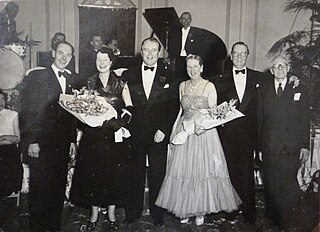
Jack Warner, OBE was a British actor. He is closely associated with the role of PC George Dixon, which he played in the 1950 film The Blue Lamp and later in the television series Dixon of Dock Green from 1955 until 1976, but he was also for some years one of Britain's most popular film stars.

Butlin's is a chain of large seaside resorts in the United Kingdom, incorporated as Butlins Skyline Limited. Butlin's was founded by Billy Butlin to provide affordable holidays for ordinary British families.
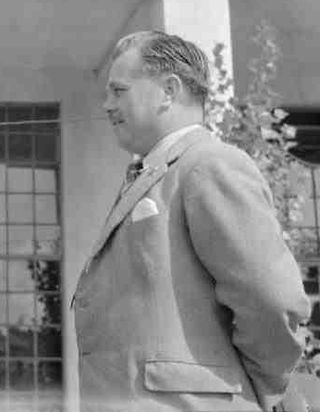
Sir William Heygate Edmund Colborne Butlin was an entrepreneur whose name is synonymous with the British holiday camp. Although holiday camps such as Warner's existed in one form or another before Butlin opened his first in 1936, it was Butlin who turned holiday camps into a multimillion-pound industry and an important aspect of British culture.
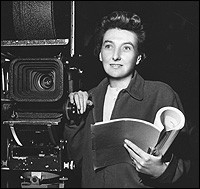
Violette Muriel Box, Baroness Gardiner, was an English screenwriter and director, Britain's most prolific female director, having directed 12 feature films and one featurette. Her screenplay for The Seventh Veil won an Academy Award for Best Original Screenplay.
Frank Sydney Box was a British film producer and screenwriter, and brother of British film producer Betty Box. In 1940, he founded the documentary film company Verity Films with Jay Lewis.

A holiday camp is a type of holiday accommodation that encourages holidaymakers to stay within the site boundary, and provides entertainment and facilities for them throughout the day. Since the 1970s, the term has fallen out of favour with terms such as holiday park, resort, holiday village and holiday centre replacing it.

Kathleen Harrison was a prolific English character actress best remembered for her role as Mrs. Huggett in a trio of British post-war comedies about a working-class family's misadventures, The Huggetts. She later played the charwoman Mrs. Dilber opposite Alastair Sim in the 1951 film Scrooge and a Cockney charwoman who inherits a fortune in the television series Mrs Thursday (1966–67).
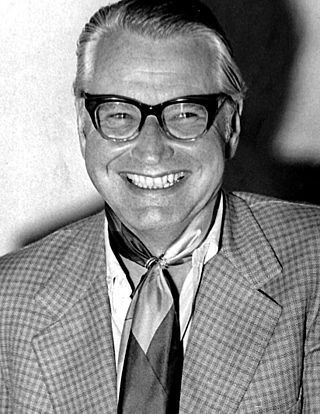
Kenneth Cooper Annakin, OBE was an English film director.
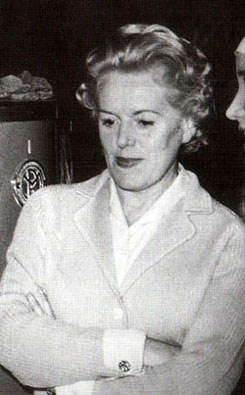
Betty Evelyn Box was a prolific British film producer, usually credited as Betty E. Box.

Penychain railway station, commonly known by its former name, Butlins Penychain railway station, is located by an over bridge at Pen-ychain on the Llŷn Peninsula in Gwynedd, Wales. This railway station is an unstaffed halt on the Cambrian Coast Railway with passenger services to Pwllheli, Porthmadog, Harlech, Barmouth, Machynlleth and Shrewsbury. For many years the station served the large Butlins Holiday Camp at Penychain.

Filey Holiday Camp railway station was a railway station built by the London and North Eastern Railway to serve Butlin's Filey Holiday Camp just south of Filey, in the then East Riding of Yorkshire, England.
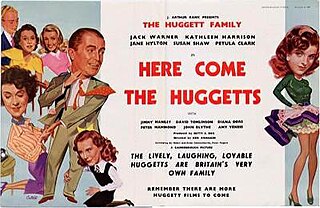
Here Come the Huggetts is a 1948 British comedy film, the first of the Huggetts series, about a working class English family. All three films in the series were directed by Ken Annakin and released by Gainsborough Pictures.

Easy Money is a 1948 British satirical film about a modern British tradition, the football pools. It is composed of four tales about the effect a major win has in four different situations in the post-war period. Written by Muriel and Sydney Box, based on the play "Easy Money" written by Arnold Ridley, and directed by Bernard Knowles, it was released by Gainsborough Pictures.

Susan Shaw was an English actress.

Vote for Huggett is a 1949 British comedy film directed by Ken Annakin and starring Jack Warner, Kathleen Harrison, Susan Shaw and Petula Clark. Warner reprises his role as the head of a London family, in the post-war years.
The Huggetts are a fictional family who appear in a series of British films which were released in the late 1940s by Gainsborough Pictures. The films centre on the character of Joe Huggett, played by Jack Warner, the head of a working class London family. Along with the Gainsborough melodramas, the Huggett films proved popular and lucrative for the studio. All four films were directed by Ken Annakin and produced by Betty E. Box.

The Huggetts Abroad is a 1949 British comedy drama film directed by Ken Annakin and starring Jack Warner, Kathleen Harrison, Petula Clark and Susan Shaw. It was the fourth and final film in The Huggetts series.

The Bad Lord Byron is a 1949 British historical drama film about the life of Lord Byron. It was directed by David MacDonald and starred Dennis Price as Byron with Mai Zetterling, Linden Travers and Joan Greenwood.

Home and Away is a 1956 British drama film directed by Vernon Sewell and starring Jack Warner and Kathleen Harrison. It depicts the life of an ordinary working-class man after he wins the football pools. The film reunited Warner and Harrison who had previously appeared together in the Huggetts series of films.

Filey Holiday Camp was a Butlin's holiday camp near Filey, North Yorkshire, England, built for Billy Butlin's holiday organisation. Construction of the camp began in 1939. From 1939 to 1945, the camp was used as a military training base, as RAF Hunmanby Moor. The camp closed in 1983.

















